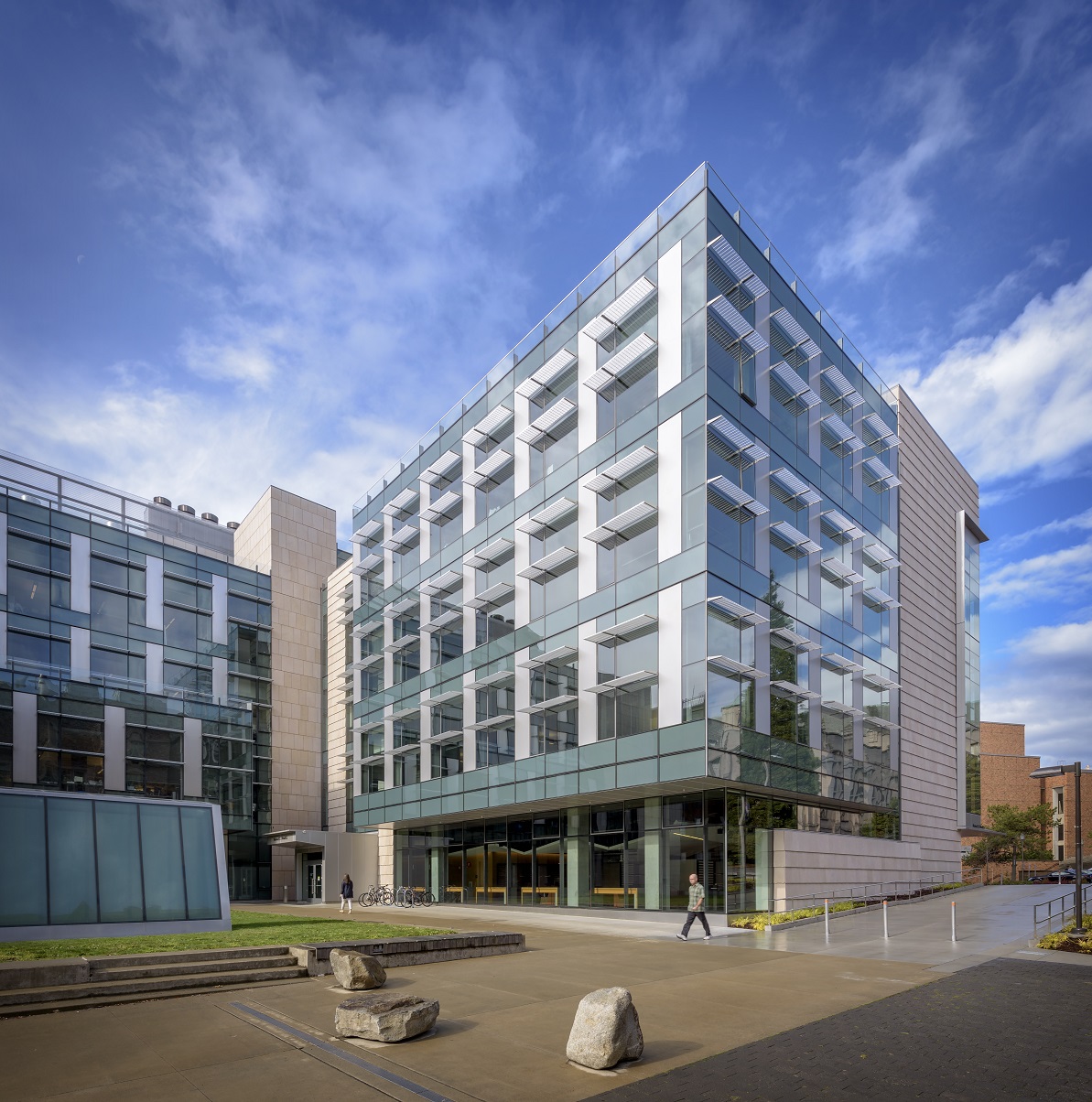*Note: As of September 2019, only a few dedicated spaces remain in the NanoES building. Before preparing a proposal, email NanoES Director Karl Böhringer to discuss feasibility.
The NanoES Institute offers 35,000 square feet of labs (including wet and optical space), offices, meeting rooms, communal areas, and extremely low vibration/EMI areas in a modern, recently-built building. This space creates an opportunity to scale up ongoing research efforts with strong momentum and to create new, high-impact programs or shared instrumentation facilities. NanoES is seeking inventive, well-thought-out ideas to leverage this space for maximum effect including, but not limited to, new center efforts and hiring initiatives endorsed by department chairs.
Proposal Submission
Respondents should fill out the proposal template and submit their response as a single PDF file to rfp@nano.uw.edu with “NanoES RFP: <your last name>” in the subject line. The template covers the overall vision as well as specific projects in the initiative, the team members and collaborators, and the fit with the NanoES Institute. The proposal should state the anticipated square footage needed in the NanoES building and specify all requested space, such as number of offices, desks, lab benches, and other facility requirements (see floor plans for the ground, first, second, and third floors). CVs and current/pending funding information for the PIs should also be included in the proposal.
Proposals that claim priority for low vibration/EMI space should incorporate original equipment manufacturer (OEM) specifications and requirements documentation, statement of technical justification, and survey/measurement data (conducted by a 3rd party entity) of the current space that demonstrates its inadequacy in meeting the OEM’s specifications.
Review Process
The NanoES Scientific Advisory Committee meets regularly to review submissions and offers its recommendations to the NanoES Director and the NanoES Administrative Committee, leading – if approved – to a memorandum of understanding (MOU) that governs the space assignment.
